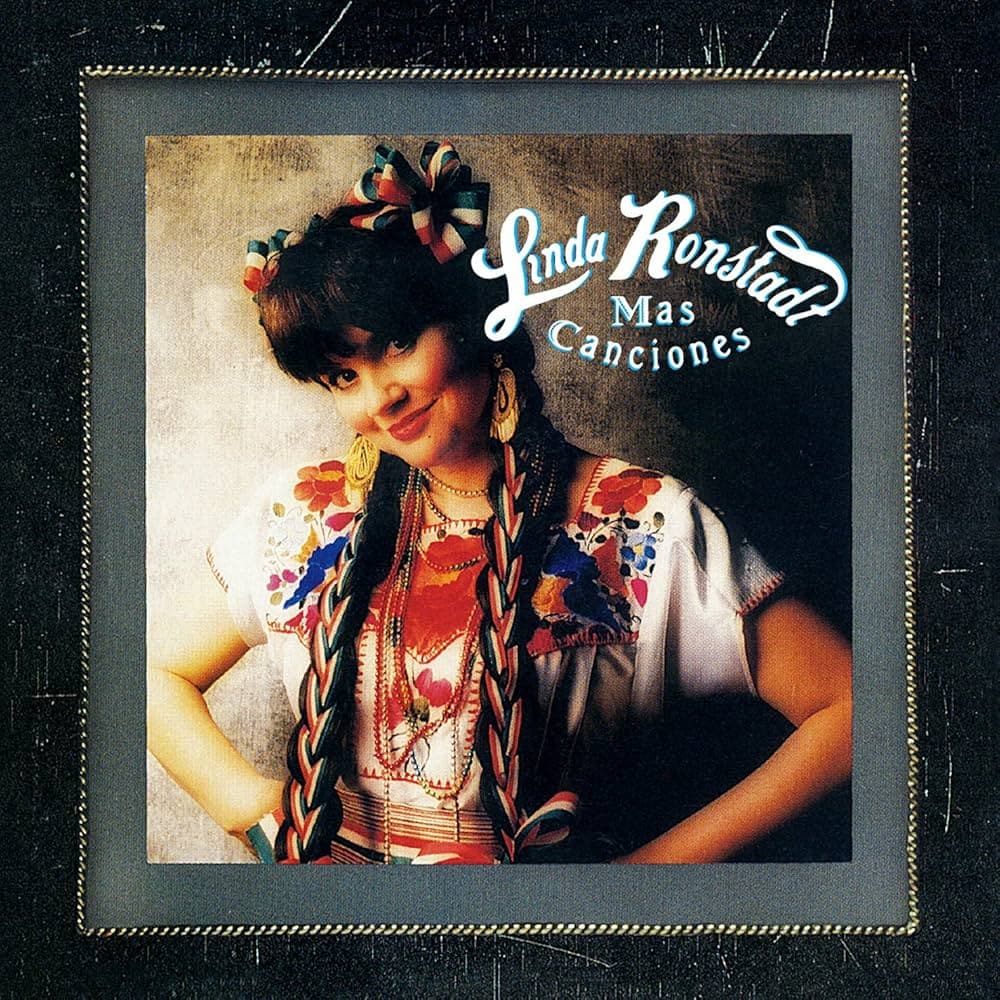
An Enduring Blossom: The Deep Roots of Love and Heritage in “Los Laureles”
Let us step back into a moment in time that, for many of us, represented a rediscovery, a blossoming of an artist’s profound connection to her heritage. We speak of Linda Ronstadt and her magnificent venture into traditional Mexican music, a journey that culminated in the iconic album “Canciones de Mi Padre” and, within its embrace, the tender beauty of “Los Laureles.” This wasn’t merely a record; it was a deeply personal testament, a heartfelt return to the lullabies and melodies that shaped her very soul from childhood. It was a bridge built across genres and generations, connecting her superstar status in rock and pop to the rich, vibrant tapestry of mariachi music.
Linda Ronstadt‘s decision to record “Canciones de Mi Padre” was a significant turning point in her illustrious career, a courageous departure from the mainstream pop and rock that had defined her success for decades. Released in late 1987, this album wasn’t just a passion project; it was a cultural phenomenon. It swiftly became the biggest-selling non-English language album in American record history, achieving double-platinum certification by the RIAA for sales exceeding 2.5 million copies in the U.S. alone. Its impact transcended mere sales figures, earning Ronstadt a Grammy Award for Best Mexican/Mexican-American Album at the 31st Grammy Awards. The album itself peaked at an impressive No. 42 on the Billboard 200 chart, a remarkable achievement for an album sung entirely in Spanish. While “Los Laureles” was not released as a standalone single and therefore did not chart individually, its inclusion on such a massively successful and critically acclaimed album ensured its widespread recognition and adoration. It became a beloved piece within a groundbreaking collection that introduced mariachi music to a vast new audience, many of whom had never experienced its beauty before.
The story behind “Los Laureles” is deeply intertwined with the history of traditional Mexican folk music, specifically the ranchera style, a genre known for its passionate expressions of love, heartbreak, and patriotism. The song itself is a traditional piece, with its origins rooted in the collective musical heritage of Mexico. For Linda Ronstadt, however, its significance was far more personal. These were the songs of her childhood, melodies sung by her father and family in their Arizona home. Her great-grandfather, Federico Jose Maria Ronstadt, immigrated from Germany to Sonora, Mexico, and later to the American Southwest, bringing with him a rich family history that included a deep appreciation for Mexican culture and music. “Canciones de Mi Padre” (Songs of My Father) was, in essence, a tribute to this heritage, a musical memoir. “Los Laureles” stands out as a beautiful example of these cherished family songs, imbued with layers of personal memory and cultural pride. It was a bold and heartfelt choice for Ronstadt to dedicate an entire album to this music, especially at the height of her pop career, demonstrating her unwavering commitment to her roots.
The meaning of “Los Laureles” (The Laurels) is a tender ode to profound, unwavering love. The lyrics, rich with poetic imagery, describe an affection so deep that it borders on devotion. The laurel tree itself, with its evergreen leaves and historical significance as a symbol of victory and honor, serves as a powerful metaphor for enduring love. The song expresses an unconditional acceptance of a beloved, highlighting their intrinsic qualities and the unwavering support they offer. Lines often speak of a love that is not dependent on external factors but rather on the partner’s inherent essence. It’s a declaration of sincere and genuine love, celebrating the unique qualities that make a partner special. The vivid imagery of “green laurel trees” and “flaming flowers” speaks to the freshness and passion within this love, while the sentiment of wishing to “take away my life” if the beloved were to leave underscores the depth of emotional attachment. It’s a song that evokes a sense of steadfastness, a love that has weathered time and circumstance.
For many listeners of a certain age, “Los Laureles” holds a special place in their hearts. It might have been the song that played during cherished family gatherings, or perhaps it sparked a newfound appreciation for a musical genre previously unexplored. It speaks to the universal themes of heritage, family, and the enduring power of love that transcends language barriers. Linda Ronstadt‘s rendition is a masterclass in vocal artistry, a testament to her astonishing versatility. Her voice, so familiar from her rock anthems and ballads, takes on a new, nuanced quality here – a rich, resonant timbre perfectly suited to the ranchera style. She delivers the Spanish lyrics with impeccable pronunciation and, more importantly, with an emotional authenticity that speaks volumes, conveying every shade of love and longing. It’s a performance that, even decades later, continues to captivate and move listeners, reminding us of the profound beauty that lies in honoring one’s origins and sharing them with the world. This song is a warm invitation to remember, to connect, and to feel the deep, resonant echoes of a love that blooms eternal, much like the resilient laurel itself.